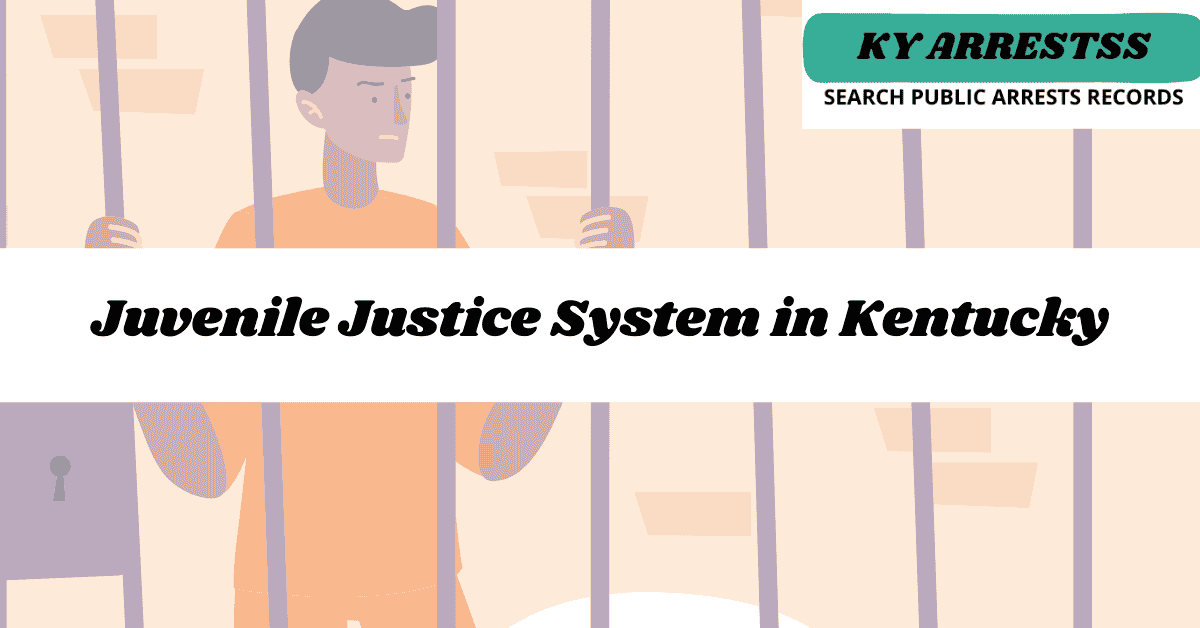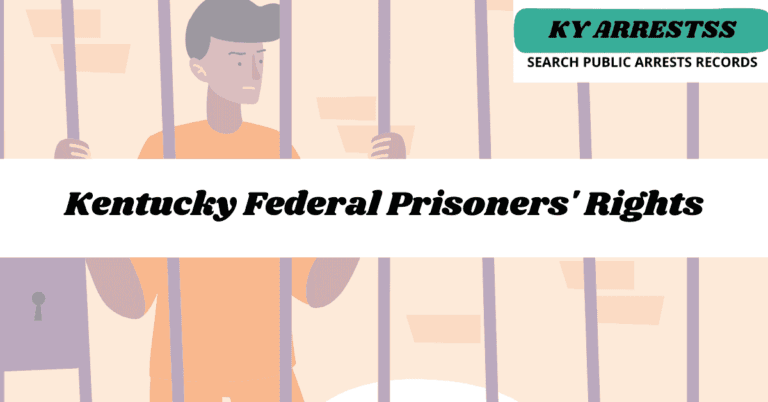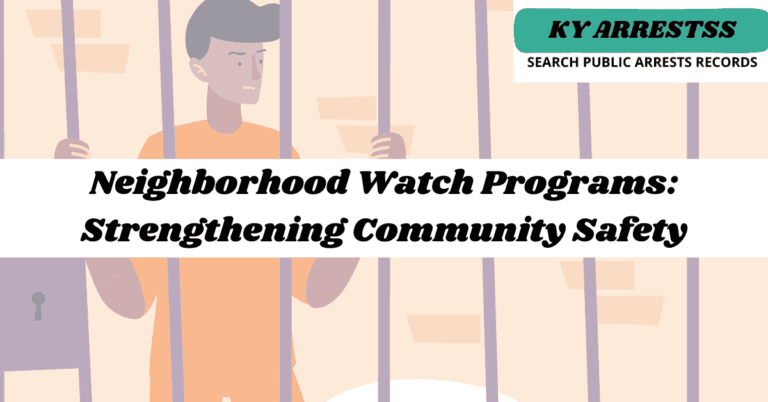Juvenile Justice System in Kentucky
The juvenile justice system in Kentucky plays a critical role in addressing youth crime and promoting rehabilitation. With a focus on diversion, rehabilitation, and community integration, Kentucky’s approach to juvenile justice aims to address the underlying factors contributing to delinquent behavior while holding juveniles accountable for their actions.
Historical Context
Kentucky’s juvenile justice system has evolved significantly over the years. Initially, juvenile offenders were often treated similarly to adult criminals. However, as understanding of adolescent development grew, so too did the recognition of the need for a separate system tailored to the unique needs of young offenders. Milestones such as the establishment of the first juvenile court and the implementation of formalized juvenile justice laws marked important steps in this evolution.
Legal Framework
The legal framework governing the juvenile justice system in Kentucky is outlined in the Kentucky Revised Statutes. These laws define the jurisdiction of the juvenile court, establish the age of criminal responsibility, and outline the procedures for handling juvenile cases. The overarching goal is to balance the principles of accountability and rehabilitation while ensuring the safety of the community.
Key Components of the Juvenile Justice System
Central to Kentucky’s juvenile justice system are diversion programs, which aim to divert juveniles away from formal court proceedings and towards community-based interventions. Additionally, probation serves as a means of supervision and support for juveniles who have been adjudicated delinquent. For those who require secure confinement, detention centers provide temporary placement while awaiting adjudication or disposition.
Juvenile Court Process
The juvenile court process typically begins with an intake and referral, during which allegations of delinquent behavior are evaluated. If the case proceeds, the juvenile will undergo adjudication, where a judge determines whether the allegations are true. Following adjudication, the court moves to disposition, where appropriate interventions or sanctions are imposed.
Goals of the Juvenile Justice System
The overarching goals of Kentucky’s juvenile justice system are twofold: rehabilitation and accountability. By addressing the underlying factors contributing to delinquent behavior, the system aims to facilitate positive behavioral change and reintegration into the community. At the same time, juveniles are held accountable for their actions through meaningful consequences that promote personal responsibility.
Challenges Faced
Despite its strengths, Kentucky’s juvenile justice system faces several challenges. Overrepresentation of certain demographic groups, limited resources, and a lack of focus on addressing the root causes of delinquency are among the most pressing issues. Addressing these challenges requires a multifaceted approach that involves collaboration across agencies and a commitment to evidence-based practices.
Reforms and Initiatives
In recent years, Kentucky has undertaken various reforms and initiatives aimed at improving its juvenile justice system. Efforts to reduce recidivism, expand alternatives to incarceration, and enhance community-based programs have shown promise in promoting positive outcomes for juveniles while increasing public safety.
Collaboration with Other Agencies
Collaboration with other agencies, including the education system, social services, and mental health organizations, is essential for addressing the complex needs of juvenile offenders. By coordinating efforts and sharing resources, these agencies can provide comprehensive support to at-risk youth and their families.
Impact of Juvenile Justice Policies
The effectiveness of Kentucky’s juvenile justice policies is evident in the outcomes achieved for participating juveniles. Rehabilitation programs have been shown to reduce recidivism rates and improve long-term prospects for success. By investing in early intervention and prevention, Kentucky is laying the groundwork for a brighter future for its youth.
Public Perception and Support
Public perception and support play a crucial role in shaping juvenile justice policies and practices. Increased understanding of juvenile justice issues, coupled with advocacy and support for reform efforts, can help to build a more equitable and effective system that prioritizes the well-being of youth and communities alike.
Success Stories
Success stories abound within Kentucky’s juvenile justice system, showcasing the transformative power of rehabilitation and intervention. Through individualized support and evidence-based practices, countless juveniles have overcome adversity and gone on to lead fulfilling lives, free from the cycle of crime and incarceration.
Future Directions
Looking ahead, Kentucky’s juvenile justice system is poised to continue evolving in response to emerging trends and best practices. By remaining vigilant in identifying areas for improvement and implementing innovative solutions, the state can further enhance the effectiveness and fairness of its juvenile justice system.
FAQs
What is the Juvenile Justice System?
The Juvenile Justice System in Kentucky is a legal framework designed to address the needs of young individuals who have committed offenses. It focuses on rehabilitation and reintegration rather than punishment, acknowledging the unique circumstances and developmental stage of juveniles.
What is the age range for juveniles in Kentucky?
In Kentucky, a juvenile is defined as an individual who is under the age of 1However, in certain cases, individuals who are 18, 19, or 20 years old may still be considered juveniles depending on the offense committed and the circumstances surrounding it.
What are the goals of the Juvenile Justice System in Kentucky?
The Juvenile Justice System in Kentucky aims to protect the public, hold juveniles accountable for their actions, promote their rehabilitation and successful reintegration into society, and ensure their rights are protected throughout the process.
How are juveniles processed within the Juvenile Justice System?
When a juvenile is alleged to have committed an offense, they may go through a series of stages within the Juvenile Justice System. This includes arrest, intake, detention, adjudication, disposition, and aftercare. Each stage is designed to evaluate the needs of the juvenile and determine the appropriate course of action.
What alternatives to incarceration are available for juveniles in Kentucky?
Kentucky recognizes the importance of providing alternatives to incarceration for juveniles. These alternatives may include probation, community service, counseling, educational programs, and restorative justice practices. The goal is to address the underlying issues and promote positive change in the lives of juveniles.
How can families and communities aid Kentucky’s Juvenile Justice System?
Families and communities play a crucial role in supporting the Juvenile Justice System in Kentucky. They can contribute by promoting prevention efforts, advocating for fair and effective policies, providing support and resources to at-risk youth, and participating in community-based programs that aim to reduce juvenile delinquency.
Conclusion
The juvenile justice system in Kentucky plays a vital role in promoting the rehabilitation and reintegration of young offenders. Through a combination of diversion, probation, and community-based interventions, Kentucky is working to address the underlying factors contributing to juvenile delinquency while holding juveniles accountable for their actions. By embracing evidence-based practices, fostering collaboration across agencies, and engaging with the public, Kentucky is positioned to build a brighter future for its youth and communities.







